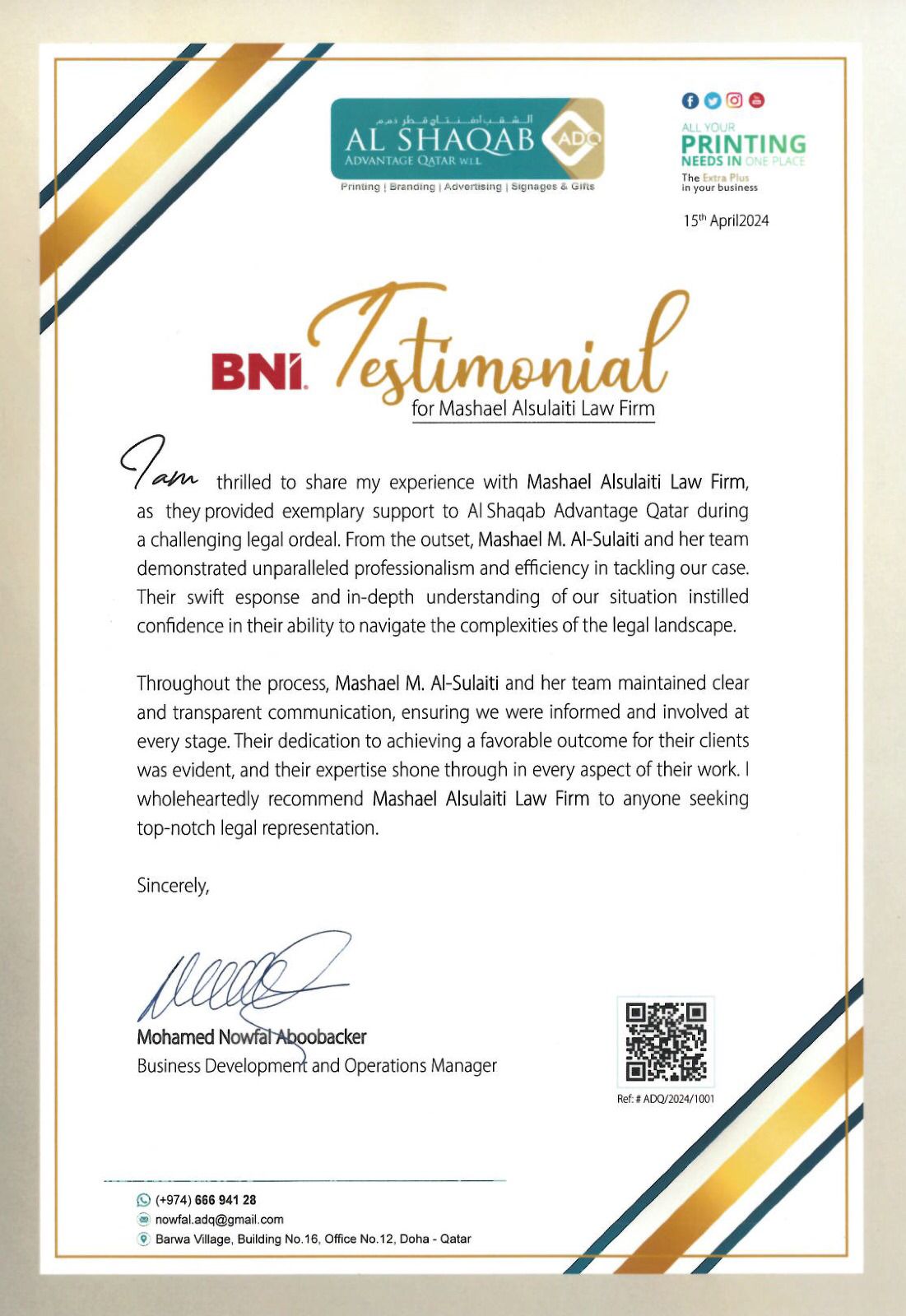H.H. the Amir Issues Landmark Amendments to the Civil Human Resources Law to Strengthen Incentives and Government Excellence

In a significant step toward advancing the efficiency and competitiveness of Qatar’s public sector, H.H. the Amir Sheikh Tamim bin Hamad Al Thani issued Law No. 25 of 2025 on 7 October 2025, amending key provisions of the Civil Human Resources Law (Law No. 15 of 2016).
His Highness also ratified Cabinet Decision No. 34 of 2025, which introduces corresponding amendments to the executive regulations of the same law, originally issued by Cabinet Decision No. 32 of 2016.
Both the law and the decision are effective from their date of issuance and will be published in the Official Gazette.
Enhancing Performance, Motivation, and Work-Life Balance
These amendments represent a strategic reform of Qatar’s public employment framework, aligning with national priorities to promote excellence, efficiency, and innovation across government institutions.
The new provisions link rewards and incentives directly to employee performance, reflecting the State’s continued efforts to foster a culture of productivity, accountability, and recognition.
In addition to performance-based rewards, the amendments introduce a range of financial, professional, and social benefits designed to improve employee well-being, encourage innovation, and achieve greater work-life balance.
Key Features of the 2025 Reforms
🔹 Performance-Based Promotions and Pay
- Promotion timelines have been expedited and will now be determined by individual performance evaluations.
- The annual salary increment will be standardised on 1 January each year, with potential increases of up to 150% of the grade level based on performance.
- A supervisory performance bonus of up to QAR 120,000 per year will be introduced, complementing the new annual performance incentive scheme.
🔹 Recognition of Excellence
- Employees who receive individual government excellence awards will qualify for accelerated promotion or special incentives.
- Those contributing to their entity’s receipt of the Qatar Government Excellence Award will also be rewarded.
- The value of in-kind rewards for outstanding employees and departments has been increased from QAR 3,000 to QAR 5,000, reinforcing institutional appreciation through tangible recognition.
🔹 Allowances and Financial Incentives
- A recruitment and retention allowance will be granted to Qatari employees in specialised and supervisory roles, including assistant undersecretaries.
- A professional certification allowance will be introduced for employees holding accredited qualifications, encouraging continuous professional development.
- Overtime compensation will be capped at QAR 10,000 per month for Qataris and QAR 5,000 for non-Qataris, payable for a maximum of six months per year.
🔹 Accelerated Career Progression
- The minimum period for promotion eligibility has been shortened by one year, subject to defined performance-based criteria, supporting career mobility and professional growth.
Modernising Recruitment and Employment Practices
The reforms introduce a modern and flexible employment model to enhance talent acquisition and workforce planning:
- Temporary contracts with fixed compensation will be permitted under clear regulations.
- University students will now be able to work part-time in government entities during their studies.
- Government agencies must appoint candidates nominated by the Civil Service and Government Development Bureau (CGB) within one month, reinforcing efficiency and succession planning.
Expanding Social and Family Benefits
A series of new social benefits aim to strengthen the work environment and promote family stability — key pillars of Qatar’s social development framework:
- Emergency leave increased to 10 days per year.
- Monthly permission hours expanded to 10 hours, up to 3 hours per day.
- One Qatari parent may accompany a child during hospital treatment within Qatar.
- Both Qatari spouses are now eligible for a marital allowance, in addition to a new annual marriage incentive of QAR 12,000 per spouse, subject to specific conditions.
- Maternity leave extended to 3 months at full salary, and up to 6 months in cases of twins or children with disabilities.
- Female employees may begin maternity leave from the eighth month of pregnancy and extend it by up to 3 additional months, during which they will receive basic salary, social, and housing allowances.
- Remote work is permitted from the seventh month of pregnancy until childbirth under approved guidelines.
- A single-person housing allowance will be granted to wives not residing with their husbands in government housing in cases of polygamy.
A Forward-Looking Vision for Public Service Excellence
According to the Civil Service and Government Development Bureau (CGB), the new amendments were developed based on comprehensive consultations with government entities and HR directors, and in line with leadership directives to link pay and promotion to merit and productivity.
These reforms represent a holistic approach to human capital development, focusing on empowerment, motivation, and well-being.
By rewarding performance, fostering innovation, and ensuring balance between professional and personal life, Qatar continues to advance toward a more agile, efficient, and human-centered public sector—one that embodies the principles of excellence and accountability envisioned in Qatar National Vision 2030.
Recent News
- تطور تشريعي يعيد رسم ملامح مهنة المحاماة في دولة قطر: أبرز ملامح التعديلات الواردة بالقانون رقم (19) لسنة 2025
- A New Era for Qatar’s Legal Profession: Key Reforms Under Law No. 19 of 2025
- Qatar's New Legal Framework for Regulating Digital Content Creation
- قطر تغير مصطلح 'كبار السن' إلى 'كبار القدر' لتعزيز قيم الاحترام والتقدير
- Qatar Implements Partial Cheque Payment Mandate

